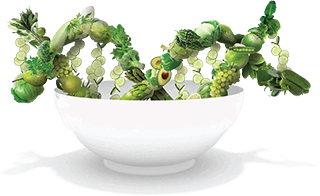This week we’re talking about skin health. We all want great skin. If we have it, we want to keep it and, if we don’t, we’ll look to see how we can improve it. Often, exactly what we try to cover up is a message from the skin telling us that something is wrong. It’s these messages that need our attention. In case you missed this week’s Facebook live you can catch the replay here.
What does the skin do? It supports organs, guards us against toxins, and protects us from heat and light. In order to do this well, the skin uses a lot of nutrients. The body will prioritize other functions before getting to vanity (the smooth, clear skin with elasticity).
A snapshot of your skin right now is actually a 3-month look back of what’s been going on. Skin messages come to us in the form of acne, redness, bumps, and dull, dry or oily complexions. Treatments in the form of pills and creams tend to address symptoms, but not always the root cause.
A foundation for healthy skin is healthy digestion and elimination. There isn’t any specific diet for skin health. However, a diet for healthy skin tends to fall under the category of choosing specific foods based on the nutrients they provide and supplements. Any digestive approach should be tried for 3-4 weeks, or a hormonal cycle if that’s relevant to you, and re-evaluated from there.
What about diet?
Increase the consumption of orange foods; the darker the better. Orange foods are good sources of vitamins and minerals that support skin health. Choose foods such as turmeric, oranges, peppers, sweet potatoes, carrots, and pumpkin. If you’re choosing frozen or canned make sure the only ingredient listed is the orange food or with added water.
Water, water and more water! Choose non-carbonated and flavored with fruit concentrate, if any. Carbonated waters can interfere with digestion. You may have to trial eliminating the bubbles and see what happens. Foods and substances that irritate digestion may be less about being bad for you and more about not doing anything good for you.
Amino acids and fatty acids. These are the end products of protein and fat, respectively. You’ll find these advertised in collagen products for better skin. That’s why you see collagen supplements in the form of creamers (amino acids plus fatty acids). Collagen supplements isolate a subset of amino acids, but they’re NOT protein supplements.
Supplements that promote skin health include magnesium, glutamine, probiotics, and digestive enzymes. The question to ask is if they are working, why are they working? If you tweak your digestion with a few food changes maybe you won’t need the supplements at all. Get some professional guidance if you choose to supplement.
It’s worth mentioning that while dairy is a common trigger for skin issues, all dairy isn’t necessarily bad for your skin. It might be the lactose or the animal source (cow’s milk vs. goat’s milk) and not the dairy itself. Is it worth trying to eliminate? Sure. Saying less or no to known triggers doesn’t mean you’ll never be able to have the items again.
Other important factors are stress, sleep, and added sugar intake.
So, how do we sum this up? Three big takeaways:
- Orange foods – the darker the better!
- Hydrate, hydrate! – challenge yourself this week to either eat more orange foods – not the artificial colored ones – or to add more water throughout the day.
- Lastly, get guidance with any supplement to play it safe and to evaluate how the supplement should evolve with you over time.
Want more food, mood, healing, and balance? Join my Facebook group and don’t forget to join weekly live topics on Facebook, Tuesdays, 3:00 pm CT.
In good health,

